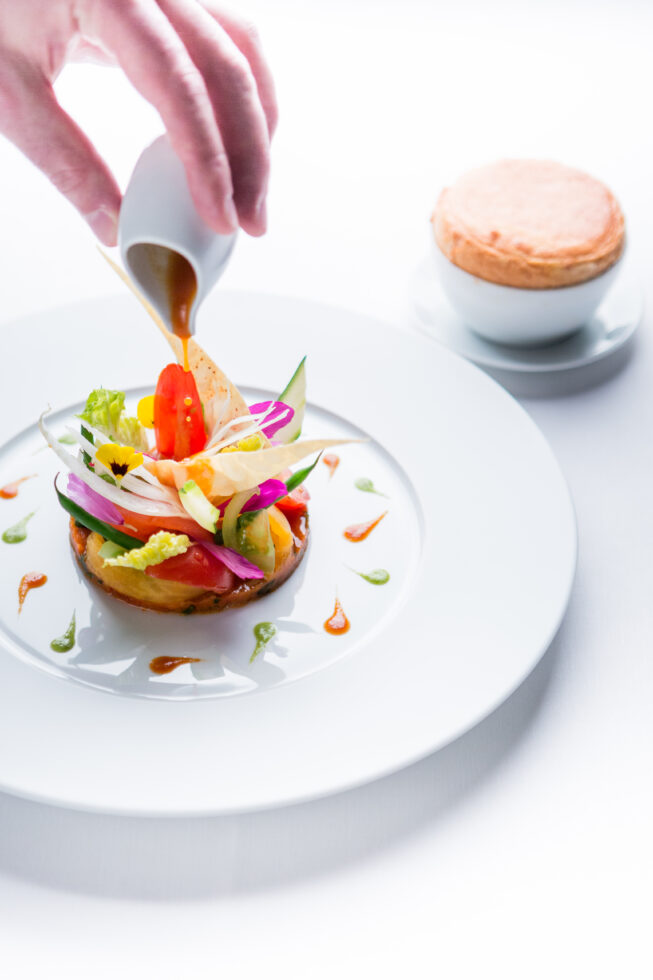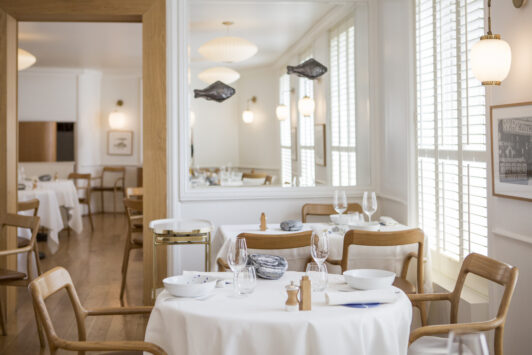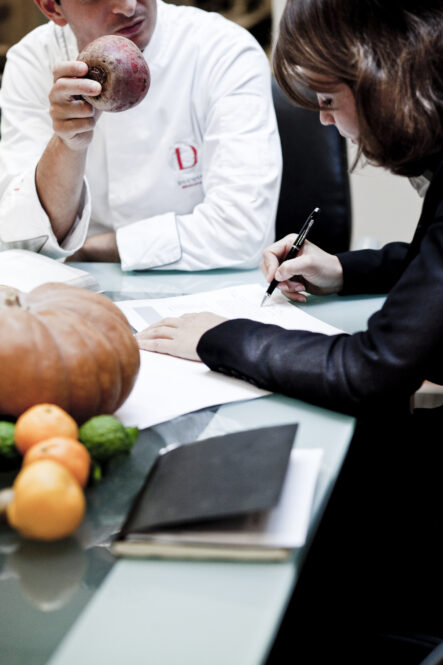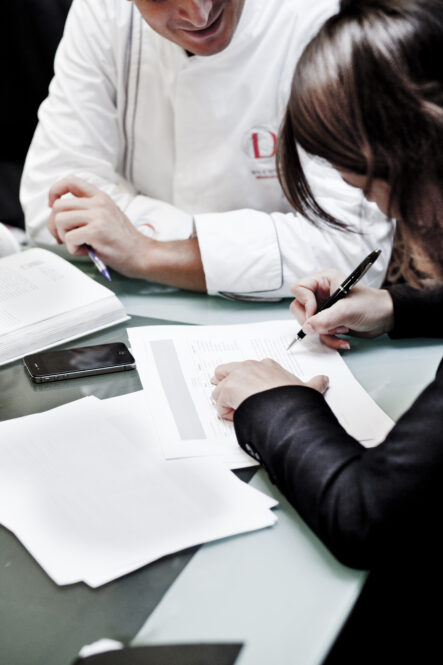Gastronomic restaurant
French cuisine is often associated with gourmet dining and helps to spread French culture worldwide. While Michelin stars are a dream for many chefs and a symbol of excellence, this award is the result of a lot of hard work.
What is a gastronomic restaurant ?
Associated with listings in the Michelin Guide, gastronomic restaurants are evaluated by inspectors based on several criteria:
- Ambiance, including the restaurant’s setting and décor
- Service, which enhances the customer experience
- Facilities
- Cuisine, assessing the quality of ingredients, technical culinary skills, the chef’s unique expression in the cuisine, and consistency across the entire menu during multiple inspector visits
Depending on the rating given, a restaurant can be classified as 3 stars for “exceptional cuisine, worth a special journey,” 2 stars for “excellent cooking, worth a detour,” and finally, 1 star indicating “a very good restaurant in its category.”
France, the birthplace of modern haute cuisine, also has the highest number of starred restaurants. However, it’s interesting to note that the city with the most Michelin stars in the world today is Tokyo, Japan, with Paris coming in second. The street with the most Michelin stars globally is in the 5th arrondissement of Lyon!
In parallel, there has been a significant growth in bistronomic restaurants (a blend of “bistro” and “gastronomic”). More casual and less exclusive, bistronomic restaurants have democratized gourmet dining by offering culinary experiences with a focus on quality ingredient.

Our best pratices
Gourmet dining is synonymous with quality and multisensory pleasures. Often considered synonymous with auteur cuisine, the menu of a gastronomic restaurant is typically short, featuring 3 to 5 dishes per category.
The quality of the ingredients is essential to achieving culinary excellence. Therefore, it is crucial for the head chef to deeply engage in sourcing fresh products from local producers. Understanding the ingredients and connecting with quality producers allows the chef to reinforce their culinary identity, showcasing the products on the plate and telling their story. More and more chefs are combining less prestigious but high-value ingredients with premium products to manage costs while highlighting their expertise. For example, Chef Alain Ducasse and Chef Romain Meder developed the concept of “Naturalité” at the Alain Ducasse restaurant in the Plaza Athénée hotel in Paris. This cuisine focuses on the trilogy of cereals, vegetables, and sustainably sourced fish. The seasonality and locality of products dictate the chef’s cuisine, not the other way around. This meticulous work was rewarded with 3 Michelin stars.
Beyond the prestige associated with Michelin stars, the ambition to become a gastronomic restaurant involves significant investments in tableware, silverware, decor, and, most importantly, in staff (with an average of one employee for every two to three customers in gastronomic restaurants like those of Pierre Gagnaire, Yannick Alléno, or Joël Robuchon).
Thus, the prime cost of a gastronomic restaurant is very high, requiring rigorous management. Diversifying activities related to this type of establishment can be a lever for optimizing revenue. This diversification can be achieved by establishing in a luxury hotel structure, such as a palace, or by developing activities around the fame of the starred chef. This is how Chef Alain Ducasse created DUCASSE Paris, which encompasses various activities (gastronomic restaurants, bistros, snacking, a cooking school, chocolate manufacturing, coffee, ice cream, and even biscuits).
In parallel with the associated costs, it is important not to overlook the revenue generated from earning a star, being listed in a gastronomic guide, or being featured in the rankings of the best restaurants in specialized magazines. This not only allows an establishment to increase its prices but also, through media exposure, to boost patronage.
The support we offer you
Drawing on its experience within the DUCASSE Paris group and the prestigious network of Michelin-starred restaurants by Chef Alain Ducasse, the DUCASSE Conseil teams support you in elevating your establishment to a gastronomic level. From on-site audits, culinary identity development, recipe creation, to training for both kitchen and dining room staff, we offer our external perspective and best practices across these areas.
Contact us for advice and we’ll get back to you as soon as possible!


